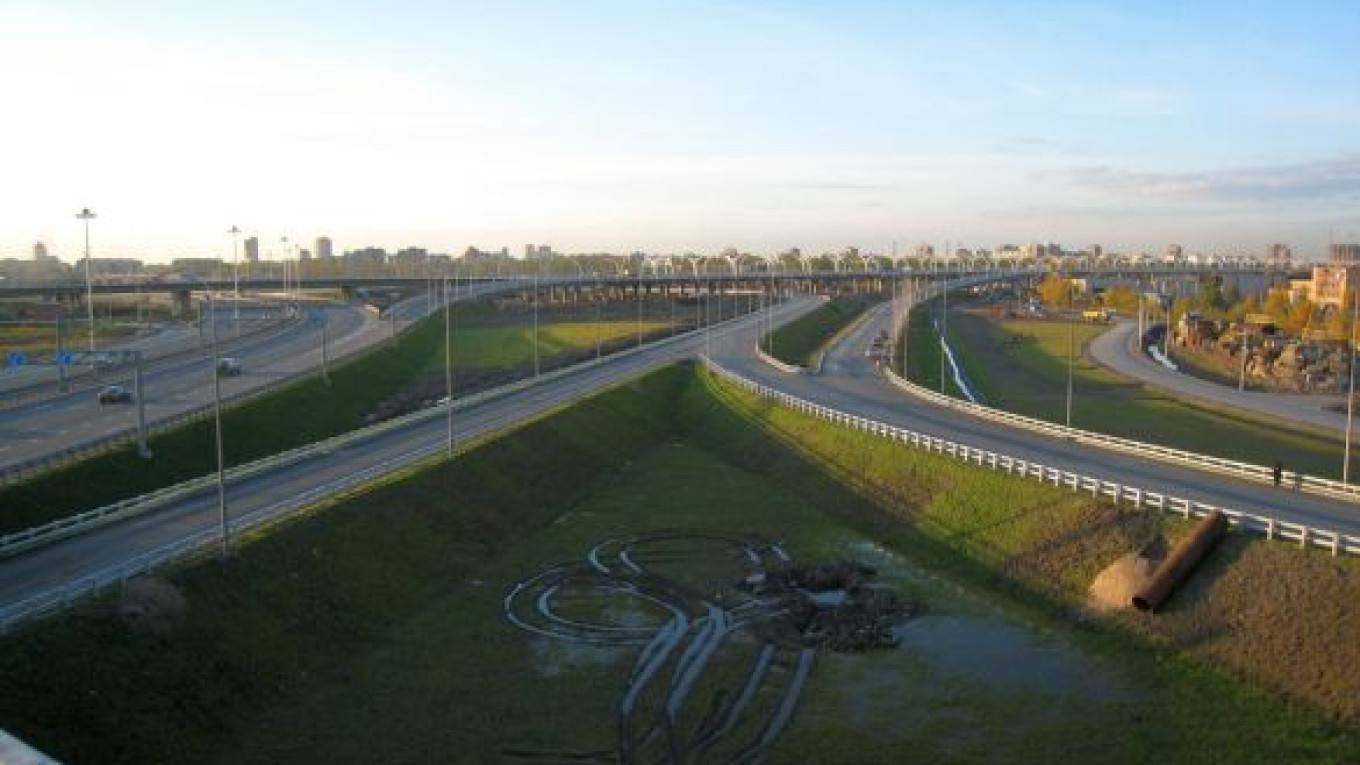Prime Minister Vladimir Putin has signed a decree on the provision of state guarantees on corporate bonds that are issued to raise funds for major investment projects.
43-Kilometer Section of the Moscow-St. Petersburg Highway
Private partner: Severo-Zapadnaya Kontsessionnaya Kompania, owned by Vinci and its subsidiary Eurovia
Estimated cost: 63.4 billion rubles
State financing: 23 billion rubles
Completion: 2013
Odintsovo Bypass
Private partner: Glavnaya Doroga, controlling share held by Lider
Estimated cost: 25.6 billion rubles
State financing: up to 11 billion rubles
Completion: 2012
Western High-Speed Diameter
Private partner: Tender won by a consortium of Hochtief, Strabag, Bouygues, Egis, Basic Element and Mostootryad No. 19
Estimated cost: 212.7 billion rubles
State financing: unknown
Completion: 2015
Source: Vedomosti
Various projects will receive state support, including three public-private partnership projects in the country: a 43-kilometer section of the new Moscow-St. Petersburg Highway running from 15 kilometers outside the capital, the new Odintsovo Bypass where the Minsk-Moscow road joins the Moscow Ring Road, and the Western High-Speed Diameter, or WHSD, in St. Petersburg. All of these will be toll roads.
This is the first time the government has provided state guarantees for PPP infrastructure projects, said Natalya Modina, a spokeswoman for Dorogi Rossii, a state body. The total volume of state support, including state guarantees, should not exceed 75 percent of total expenditure on the project, and the value of guarantees on bonds should be no more than 50 percent of the total but no less than 1 billion rubles ($34 million), the government decree stated.
These are relatively beneficial conditions, said Ilya Rachkov, a partner at Noerr, and Yevgeny Trusov, a partner at Ernst & Young. It is key that the list of documents that the Finance Ministry requires — 13 in total — is exhaustive, said Rachkov. The state guarantees will be issued in rubles for 20 years, with the first redemption payment no earlier than 2014. The state will have secondary liability. Investors could experience problems if they request ahead-of-schedule repayment, said Olga Anikina, a lawyer at Baker & McKenzie. “State guarantees will function, but not in all circumstances.”
Currently the companies involved in these PPP projects are planning to attract 57.7 billion rubles using bonds. Glavnaya Doroga, the private partner in the Odintsovo Bypass project, will issue bonds with a total value of 8.2 billion rubles in a single issue maturing in 2027. The issue is planned for after April 15, said Sergei Kerber, head of investment projects at Lider, which holds the controlling stake in Glavnaya Doroga. “We consider the plan that the government has proposed to be well-thought-out, although the subsidiaries [not the firm state responsibilities provided by bonds] could create specific difficulties,” he said.
The private firm involved in constructing the section of the Moscow-St. Petersburg Highway, Severo-Zapadnaya Kontsessionnaya Kompania, will launch five bond issues for a total of 24.5 billion rubles, each with a 20-year maturity period. The Russian representative office of Vinci, the company’s owner, declined to comment. The WHSD project hopes to attract 25 billion rubles via bond issues, the first of which could be launched no earlier than August, said Vera Khaifets, a spokesperson for the St. Petersburg Investment Committee. “The participation of private investors in the construction is planned, but its exact form is still being worked out.”
The state has taken a large step toward meeting its private partners halfway, and now the projects will be more attractive for investors, while road construction will begin to pick up speed, said Trusov. A state guarantee is the right instrument, as such a support mechanism was lacking, said Rachkov. It is unlikely that the state will support its private partners to such a large extent in the future — it is not economically viable, said Trusov. One can only talk about separate risks, he said, such as the risks relating to traffic volumes, which could extend projects’ payback periods and disrupt bond redemptions. There are many possible forms of support, said Robert Vartevanyan, a partner at KPMG. In the United States, road infrastructure projects are traditionally financed by a combination of the federal and state budgets, as well as tax-free municipal bonds.
A Message from The Moscow Times:
Dear readers,
We are facing unprecedented challenges. Russia's Prosecutor General's Office has designated The Moscow Times as an "undesirable" organization, criminalizing our work and putting our staff at risk of prosecution. This follows our earlier unjust labeling as a "foreign agent."
These actions are direct attempts to silence independent journalism in Russia. The authorities claim our work "discredits the decisions of the Russian leadership." We see things differently: we strive to provide accurate, unbiased reporting on Russia.
We, the journalists of The Moscow Times, refuse to be silenced. But to continue our work, we need your help.
Your support, no matter how small, makes a world of difference. If you can, please support us monthly starting from just $2. It's quick to set up, and every contribution makes a significant impact.
By supporting The Moscow Times, you're defending open, independent journalism in the face of repression. Thank you for standing with us.
Remind me later.


